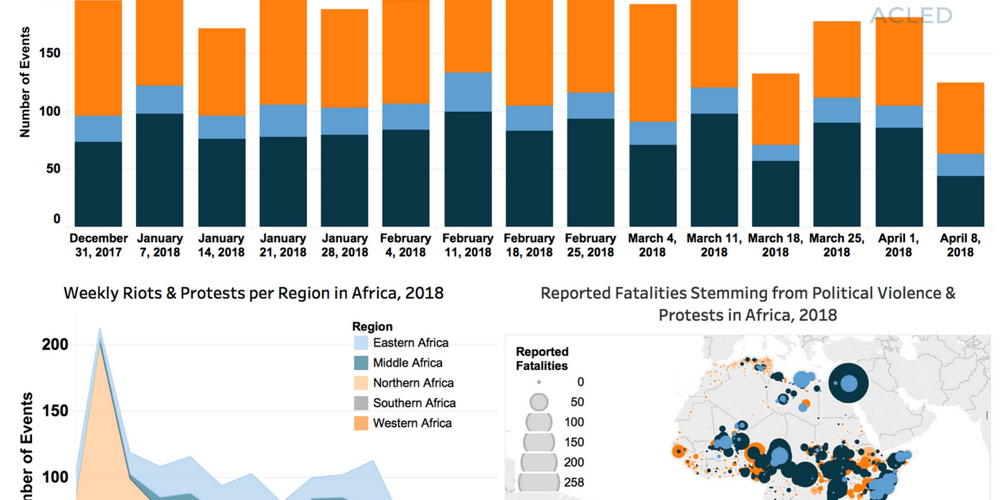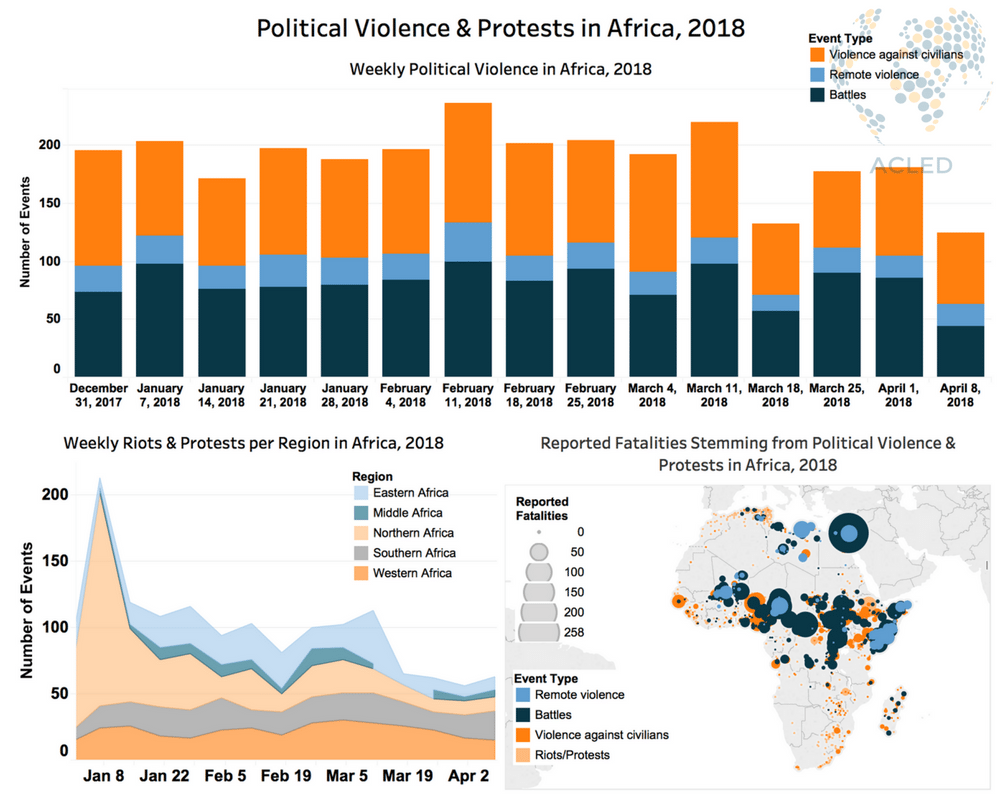It was a particularly violent week across Africa, which included high-impact attacks by Islamist militants in Egypt, Mali and Burkina Faso. In Egypt, the State of Sinai carried out its most violent attack against the Egyptian forces in 2018. The militants used suicide vests outside a military camp in Al Qusaymah, central Sinai on April 24th. This resulted in at least 20 fatalities. The attack came as the government extended–for the fourth time–the state of emergency until July 2018, and as the state forces continue to report successful sweeping operations (as part of Operation Sinai 2018).
In Mali, suspected militants from ‘Support of Islam and Muslims’ (JNIM) carried out an unprecedented, complex attack against the international forces based at Timbuktu airport on April 14th. They combined mortar barrage, multiple explosives-laden vehicles and commandos, including suicide bombers. The French military forces countered by deploying aviation assets from Gao and Niamey. At least 16 were killed and dozens injured in the battle.
Finally, in Burkina Faso, violence against civilians by Ansaroul Islam militants surged in the Sahel region’s Soum province, who attacked several villages around Djibo and killed yet another local official in Koutougou. The group has carried out several assassinations and abductions of local officials/councilmen and village chiefs since last February and has also targeted schools.
Another key development in Africa last week was the renewed wave of violence in the Central African Republic’s capital, Bangui. MINUSCA troops launched operations to disarm local militias in the KM5 neighborhood on April 8th and 10th, leading to clashes that resulted in 22 killed and more than 100 injured. In parallel to the clashes, shots were fired near the presidential palace, while prisoners mutinied at the Ngaragba prison. Populations reacted angrily to the escalated violence in Bangui: they demonstrated on April 9th and again on the 11th, deposing the bodies of 17 victims of the KM5 violence in front of the MINUSCA offices. Instances of political violence in Bangui are generally linked to clashes between self-defence groups, especially in the PK5 area. MINUSCA was recently attacked in Bangui by local militias from the PK5 (on March 31st) but before then, it had not been involved in similar clashes since February 2017.
Finally, Nigeria continues to be extremely active on several fronts. On the one hand, the government is continuing its campaign against Boko Haram in Borno state. It reported several successes last week, notably the killing of around 10 militants and the rescue of 182 hostages in several encounters across the state; the launch of airstrikes against Boko Haram targets in the Abadam zone; the foiling of a suicide attack at the University of Maiduguri; and the arrest of a high-profile Boko Haram bomb-making specialist in Gombe state. However, armed Fulani militiamen have been unceasingly attacking civilians across the country. On April 11th, two large-scale attacks were perpetrated by Fulani militiamen in Jande-Ikyura in Ukum Local Government Area (Borno state) and in Jandeikyula village in Wukari Local Council (Taraba State), killing 73. Retaliatory attacks between an armed Fulani militia and Tiv farmers in Nasarawa state also left 17 killed a few days earlier.







